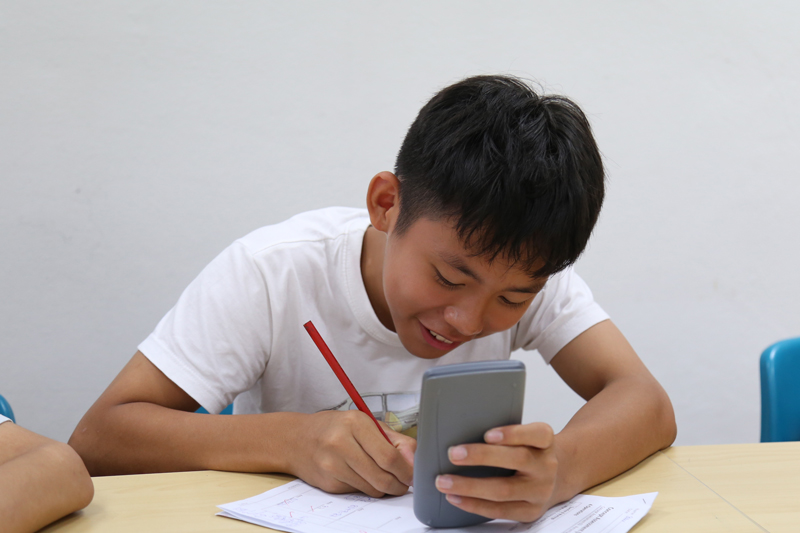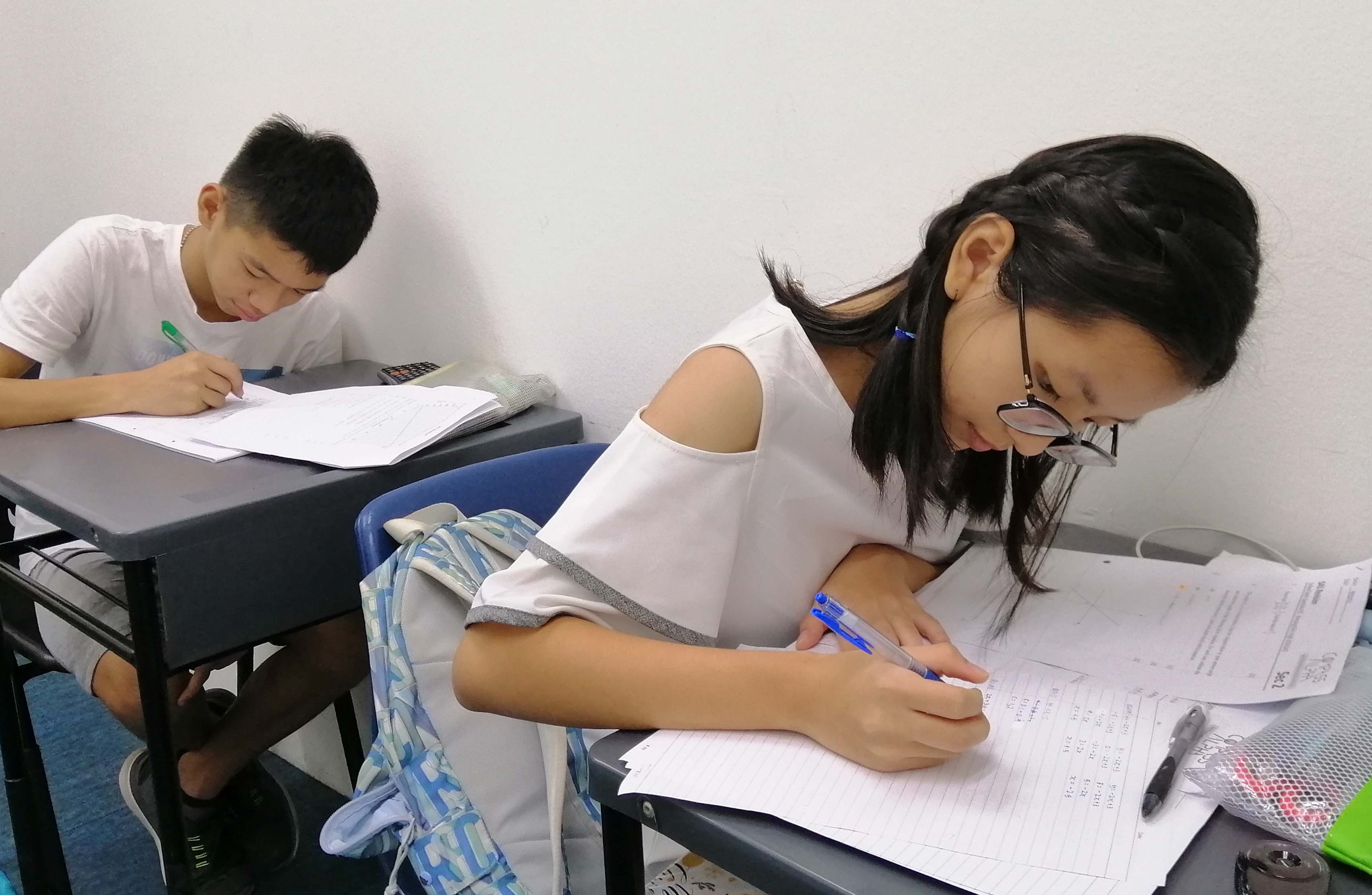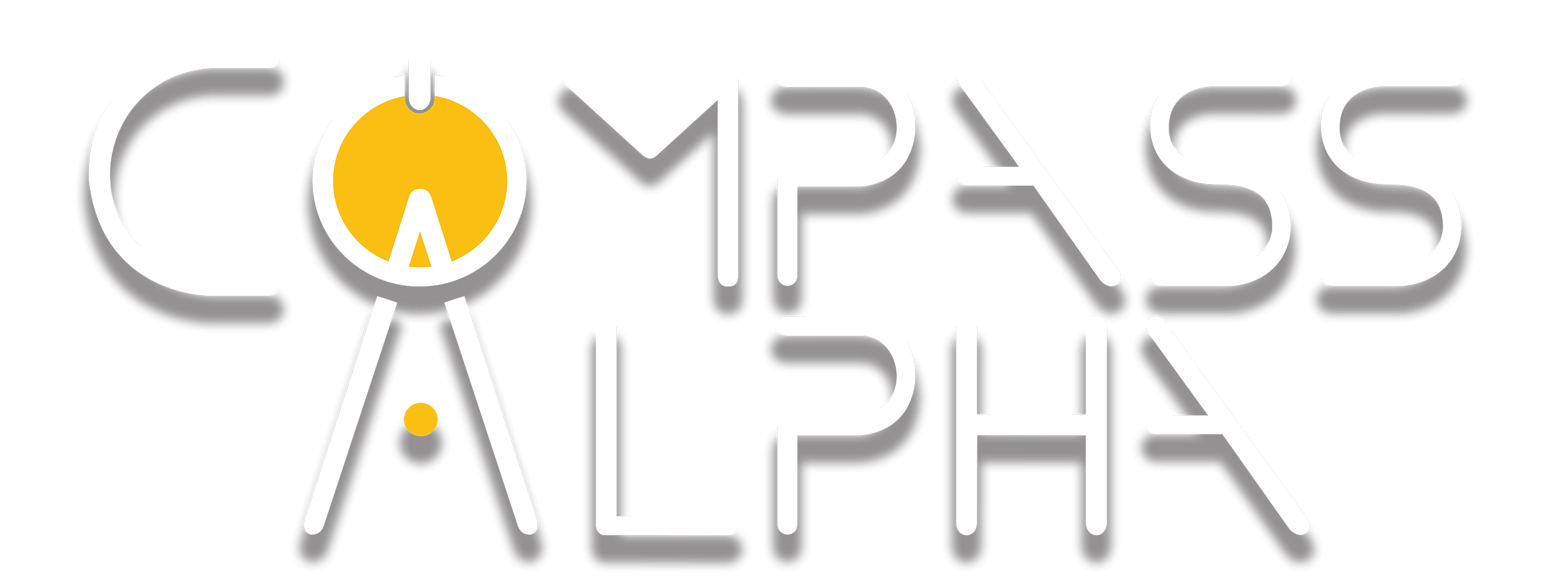Secondary School
Mathematics Programme
In Compass Alpha, we follow MOE Mathematics Syllabus closely and support both O and N level as well as IP programme.
Students first join us will have to take an entry Math Capability Assessment which helps tutors to identify their learning needs and plan for differentiated learning activities.
Our curriculum team at Compass Alpha adopts a systematic approach in the development of our in-house materials which include:
- Concept Builders to kick start students in learning new mathematical concepts or problem- solving techniques. Every Concept builder includes concept drills to make sure that students have mastered the basic concept and/or skills learnt in each session before they are assigned worksheets for independent work at home.
- Worksheets that are designed in such a way that questions are arranged by type and difficulty to effectively equip students to handle routine questions to questions involving higher order thinking skills
- Concept Assessments to evaluate the level of mastery of each mathematical concept/problem solving technique to be administered at the end of each semester. Based on the assessments, each student will receive a Competency Matrix, which serves as a good indicator of students’ accomplishment as well as areas for improvement.

Elementary Mathematics
Our Elementary Mathematics programme, offered to secondary 1 to 4 students encompasses three content strands, namely Algebra, Geometry and Probability and Statistics.
Algebra
Algebra is the foundation of secondary school mathematics as well as other subjects. Learning algebra helps to develop critical thinking skills, including problem solving, logic thinking, patterns recognition and deductive and inductive reasoning.
As algebra and its expressions are considered the language of mathematics, our lower secondary program aims to inculcate in students the fundamental of communication in Mathematics.
As our students progress into the upper secondary level, we develop in students higher level thinking skills to solve real life problems such as making travel plans, transport schedules, personal and household finance planning, paying bills etc
Geometry
A classical discipline of mathematics, Geometry is the study of points, lines, and planes, which are the basis of 3-Dimensional objects such as the different kinds of containers, buildings and structures etc.
Our lower secondary programme equipped students with basic measuring and calculation techniques so that they can visualize and make connections between model and real live objects.
Our upper secondary programme focuses on techniques of practical uses in
- determining shortest path or shortest time taken from one place to another
- computing amount of materials required for a project
- mapping skills in surveying, navigation
- planning various design and construction projects
Statistics and Probability
Statistics is about observing, collecting and organizing data.
Probability is about the likelihood or chance of an event occurring. It plays a very important role in analysing games of chance, genetics, weather forecast, risk management and a myriad of other everyday events.
At the lower secondary level, we introduce the basic concepts of statistics in terms of data collection, data presentation, and discuss the appropriate use of the measure of central tendency in different contexts in everyday life.
At Upper Secondary level, we move students to higher analytical skills in terms of comparing, reasoning and discussion of two sets of data, and judging whether the statistics are meaningful and are being used appropriately.
We also introduce at lower secondary level the basic concept of probability, including definitions of the different terminology and fundamental method of calculating probability whereas scenarios that involve dependencies of events and mutually exclusive events will be discussed at Upper Secondary Level.

Additional Mathematics
We offer Additional Mathematics to Secondary 3 and 4 students, arranged in four broad areas: Algebra, Geometry and Trigonometry and Calculus.
Algebra, Geometry and Trigonometry are extensions of Elementary Mathematics in which students learn new techniques and develop abstract thinking in handling more complicated questions often used in architecture and engineering and other related disciplines.
Calculus is the branch of mathematics used to study any phenomena involving change. The purpose of studying calculus is simply to inculcate in students the scientific method of analysis.
